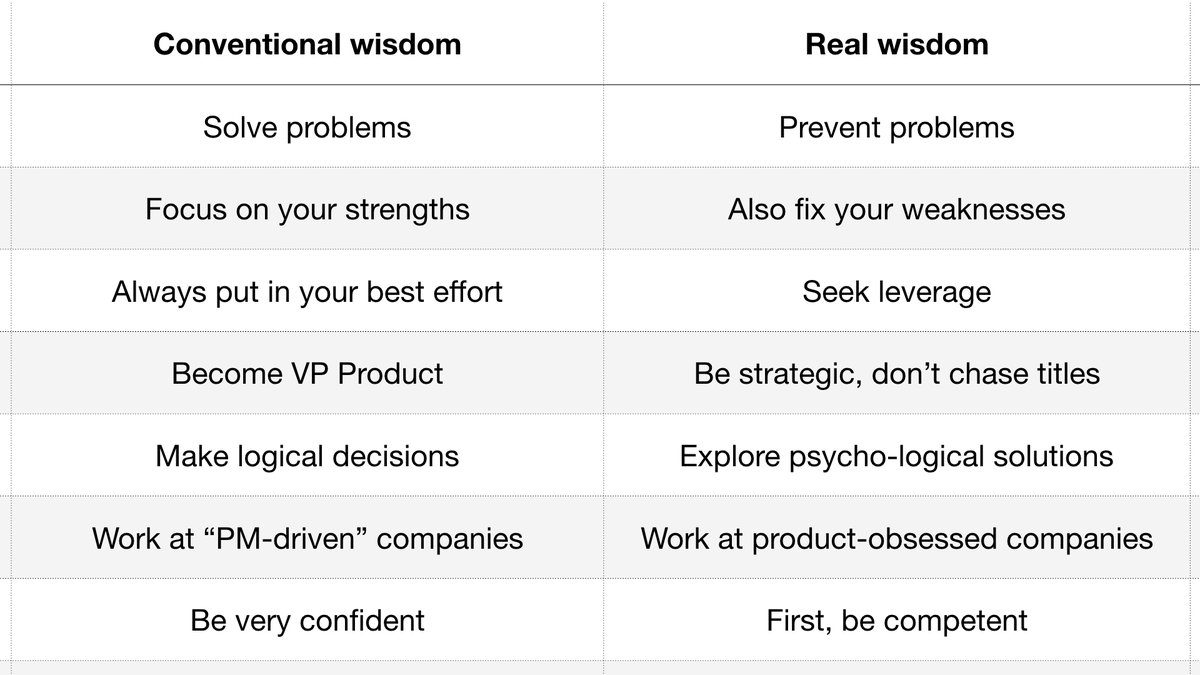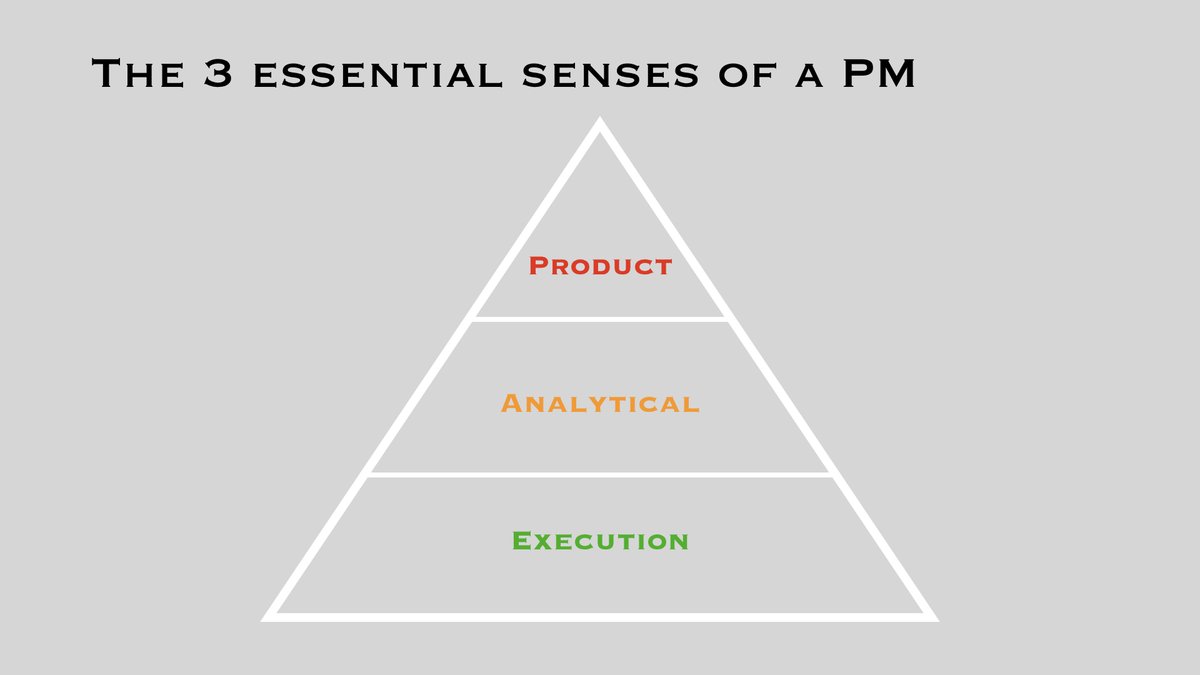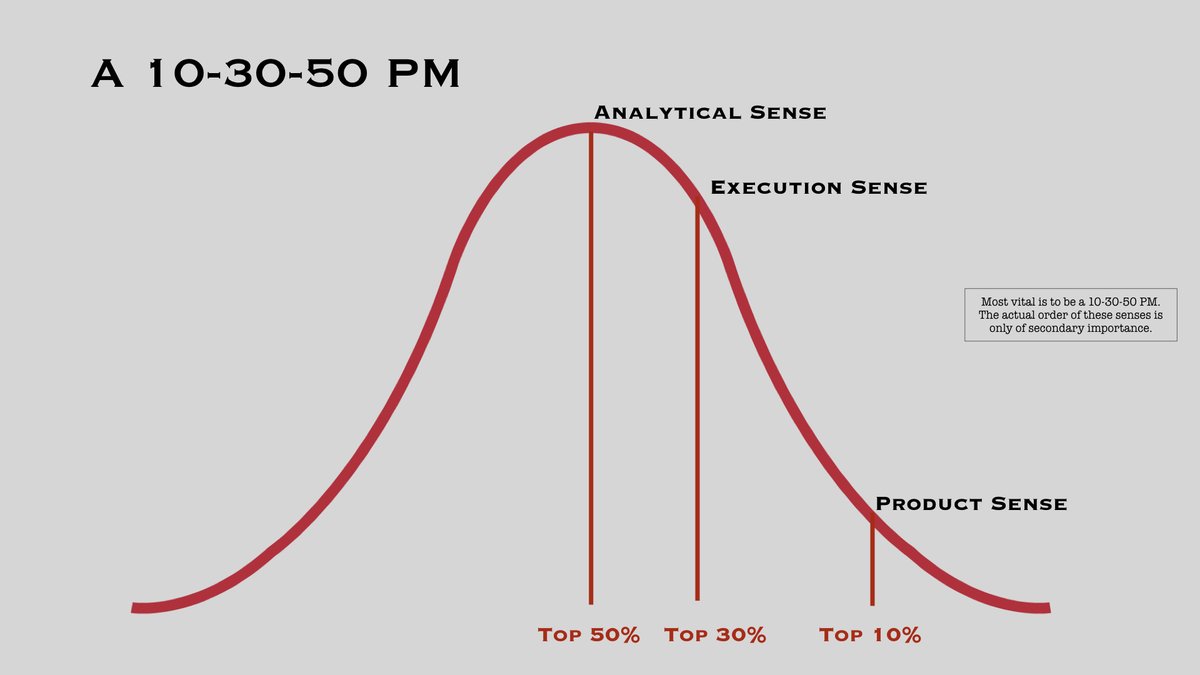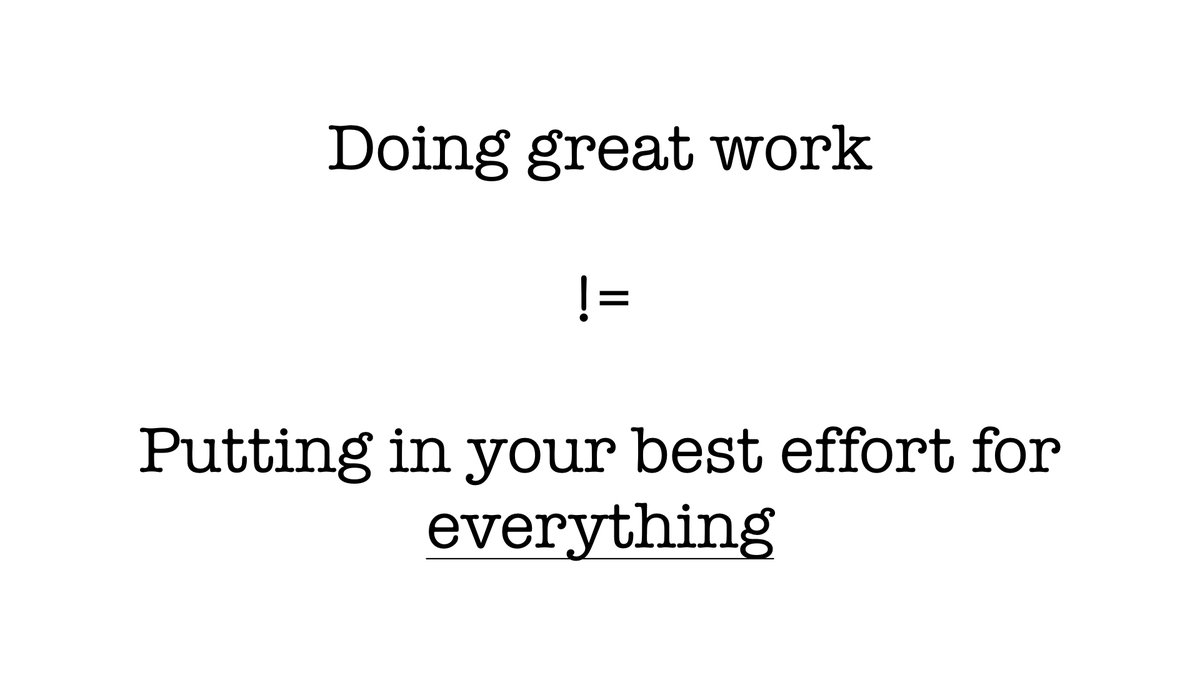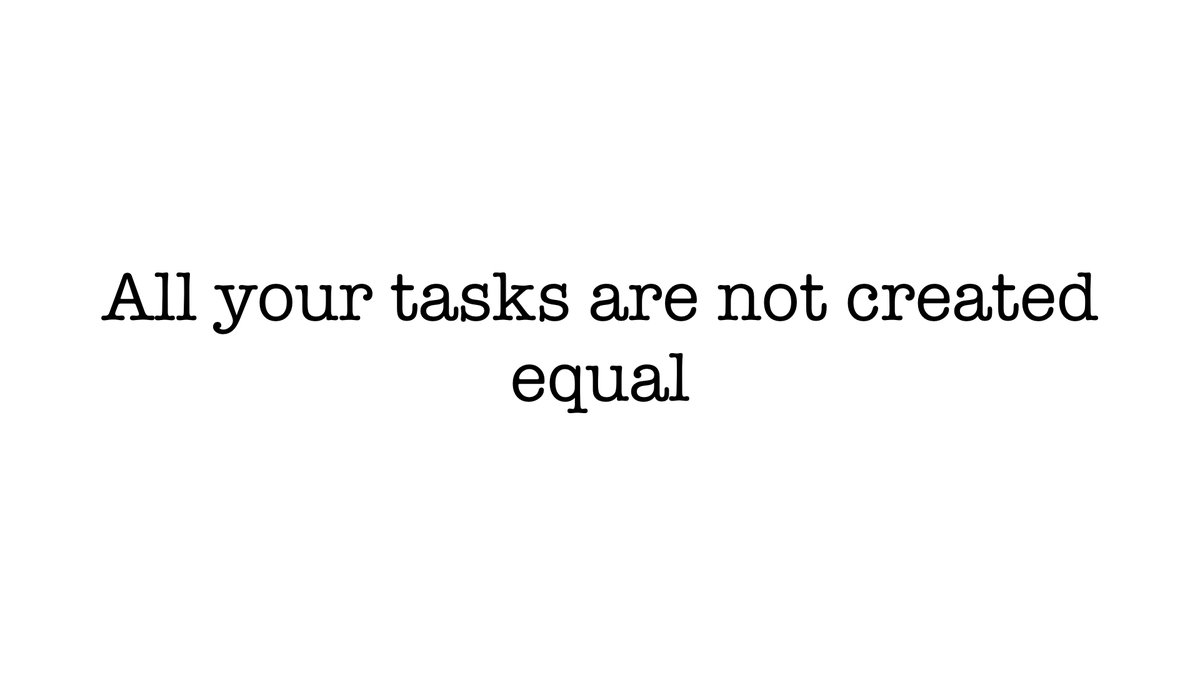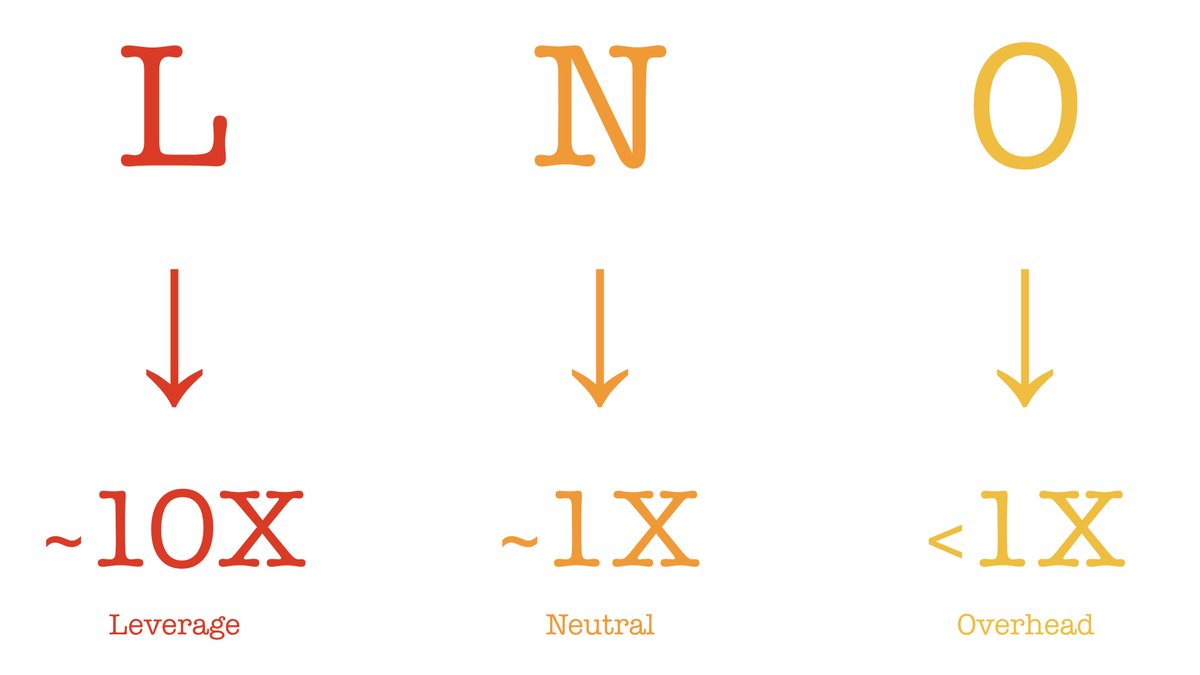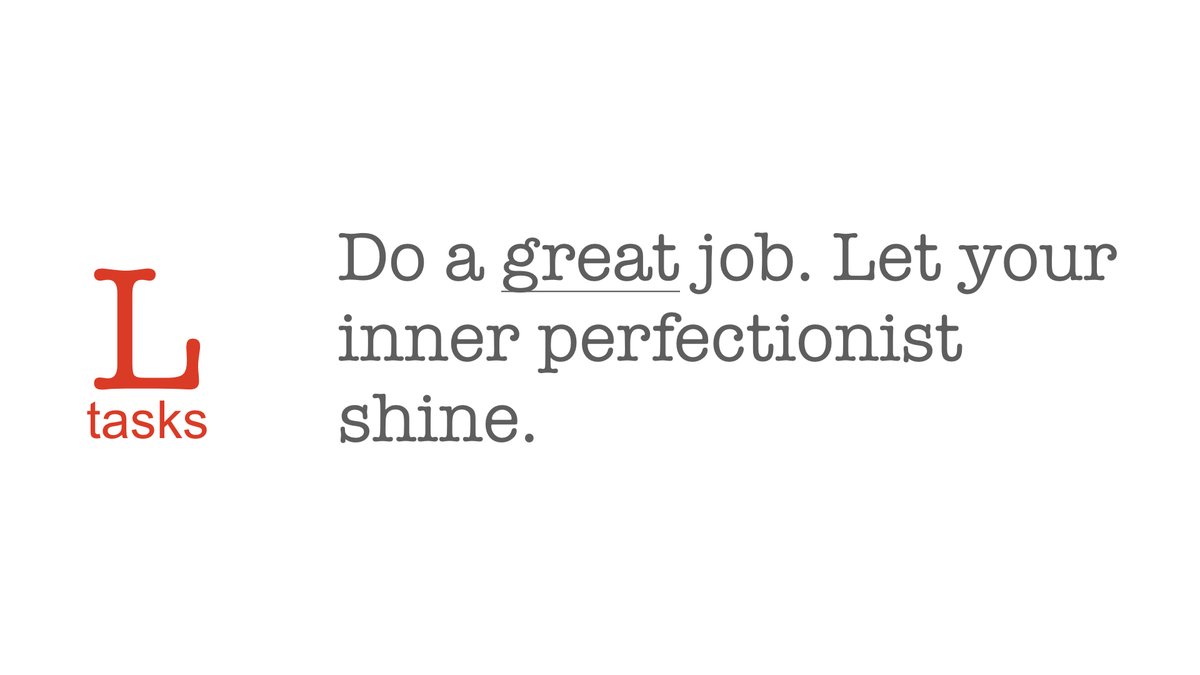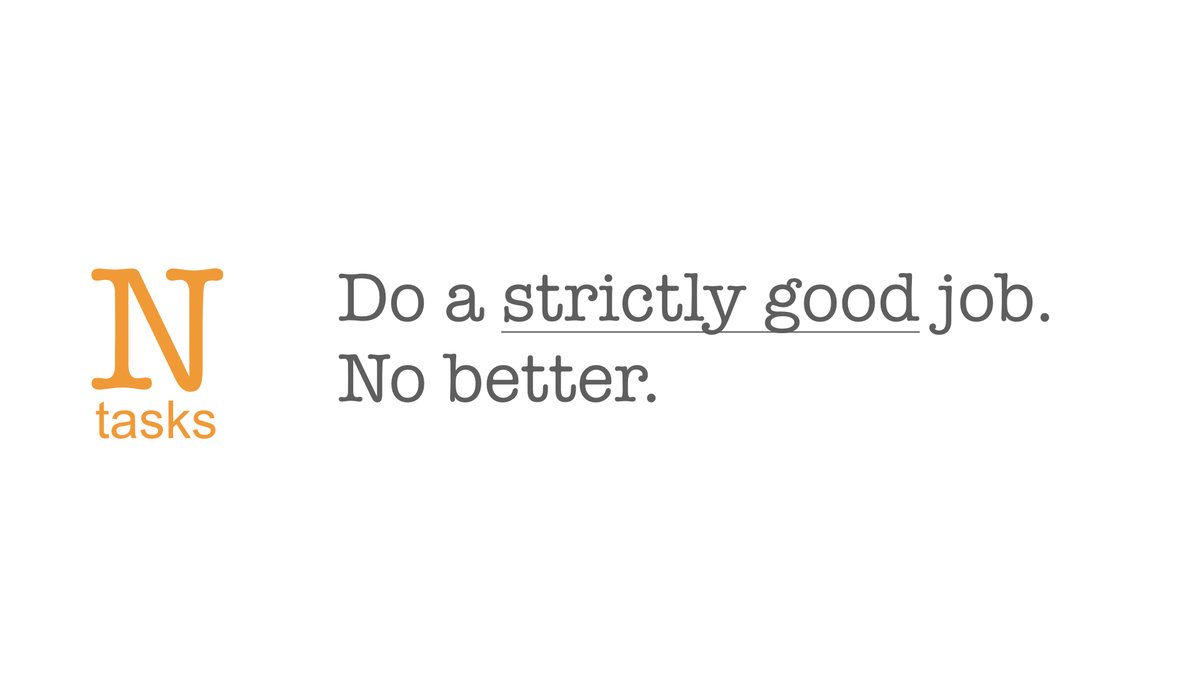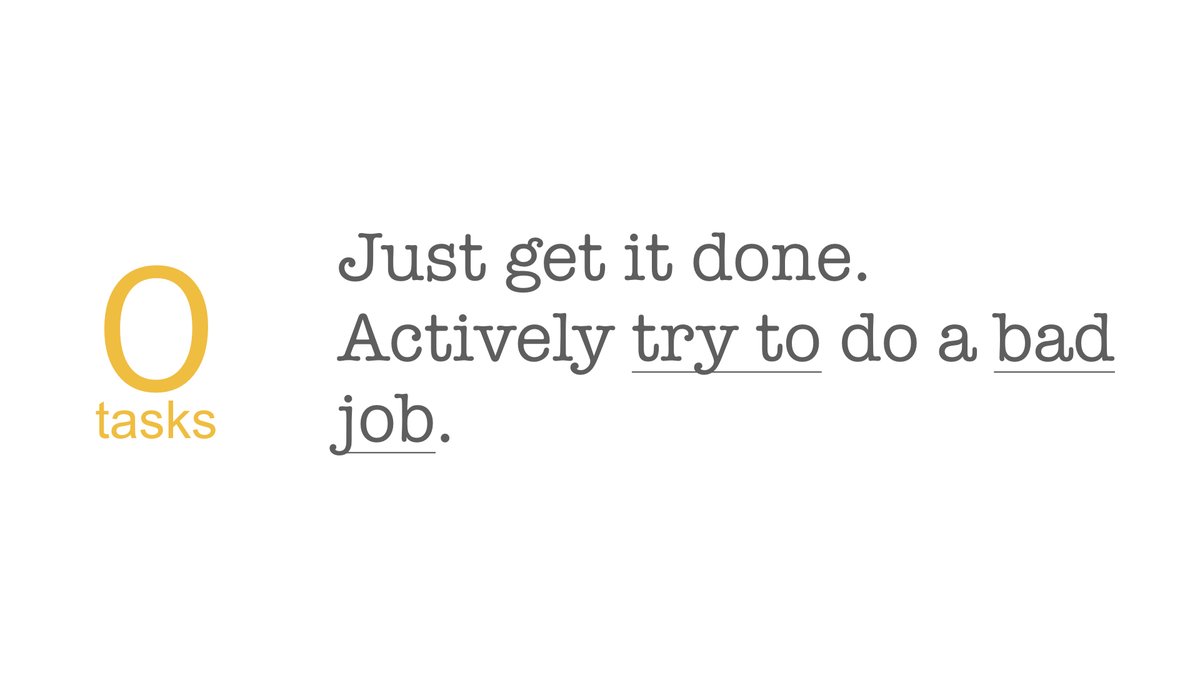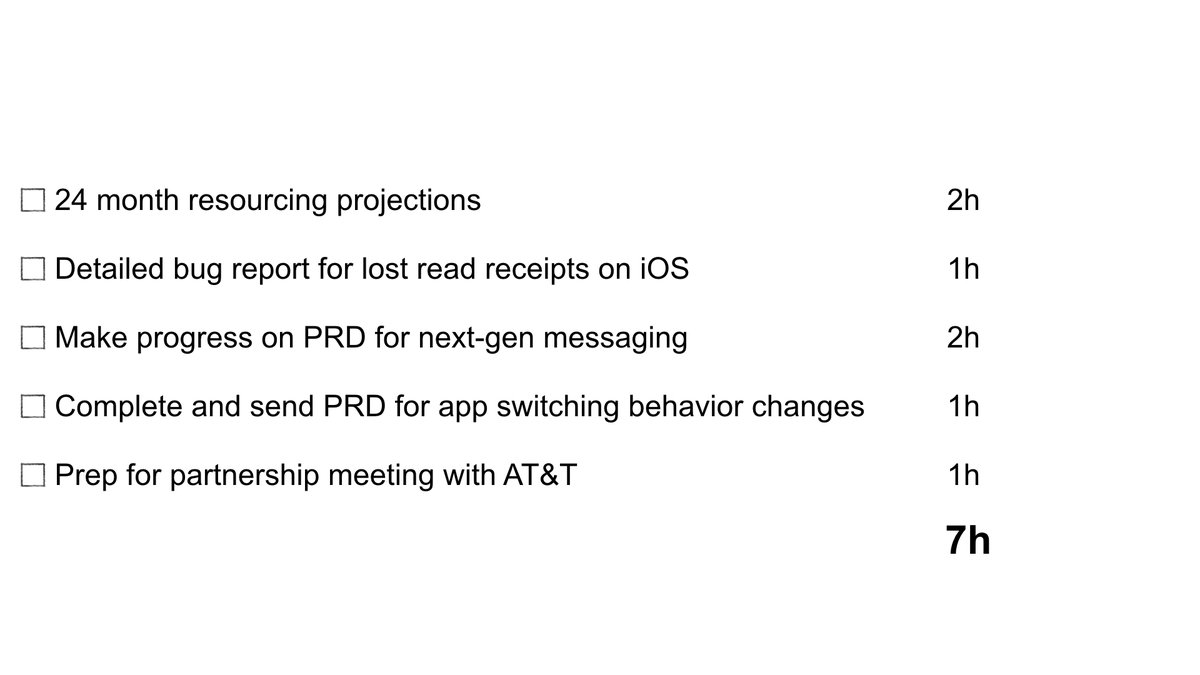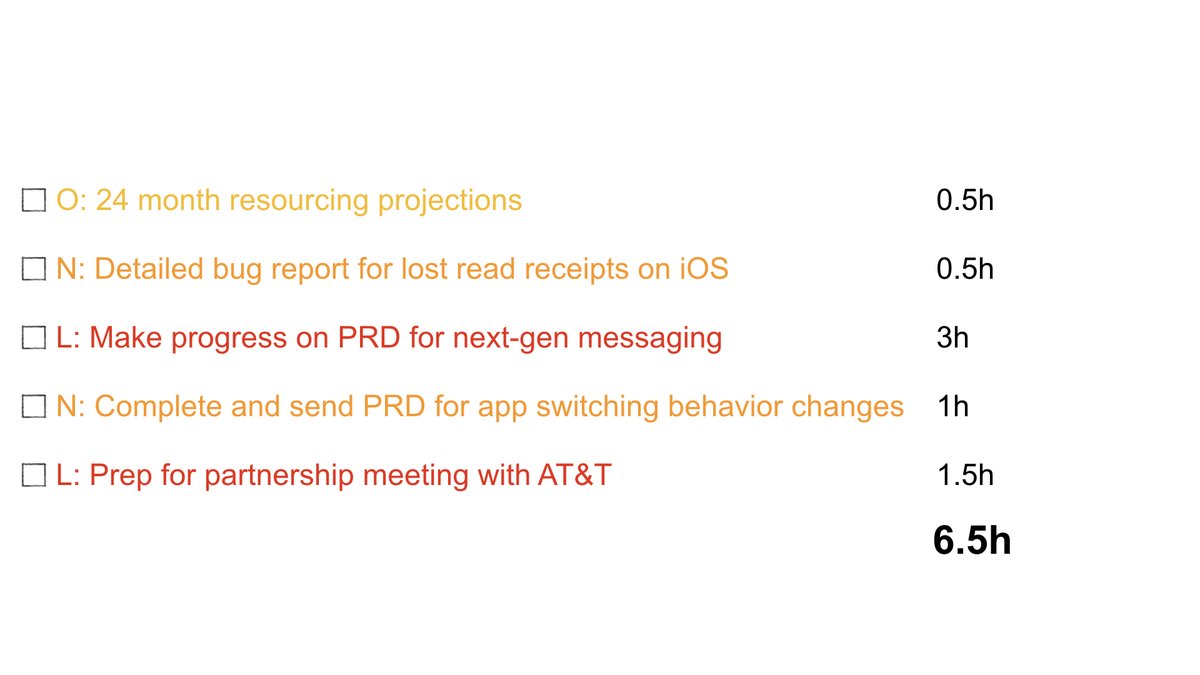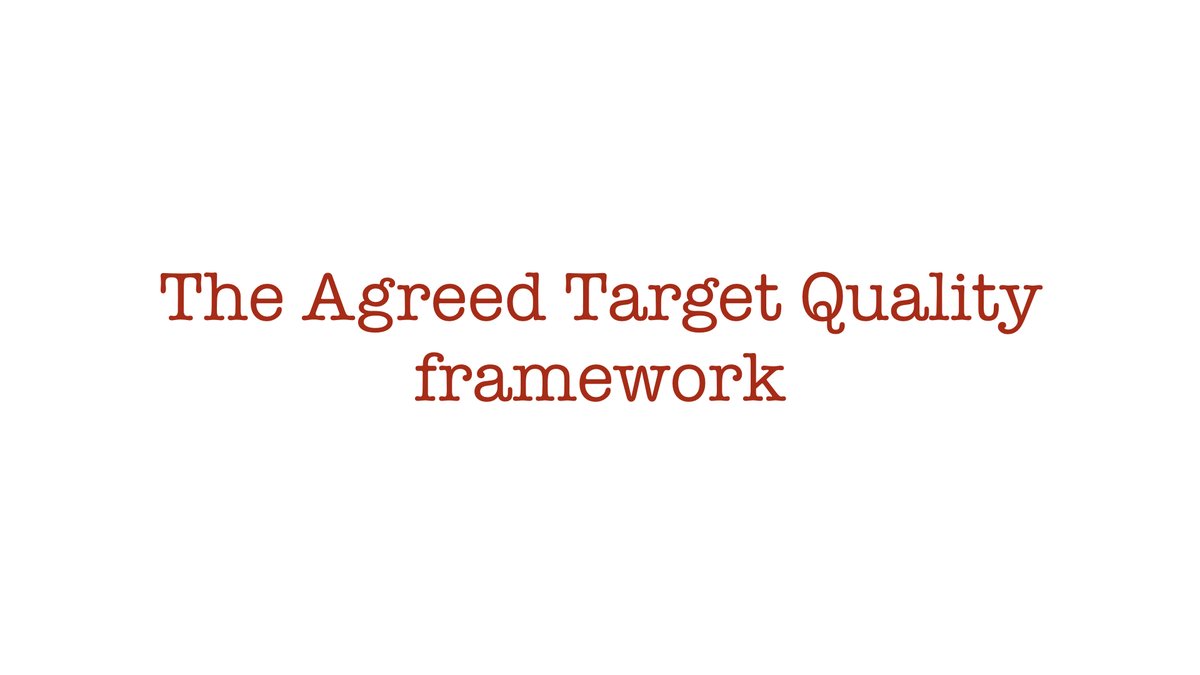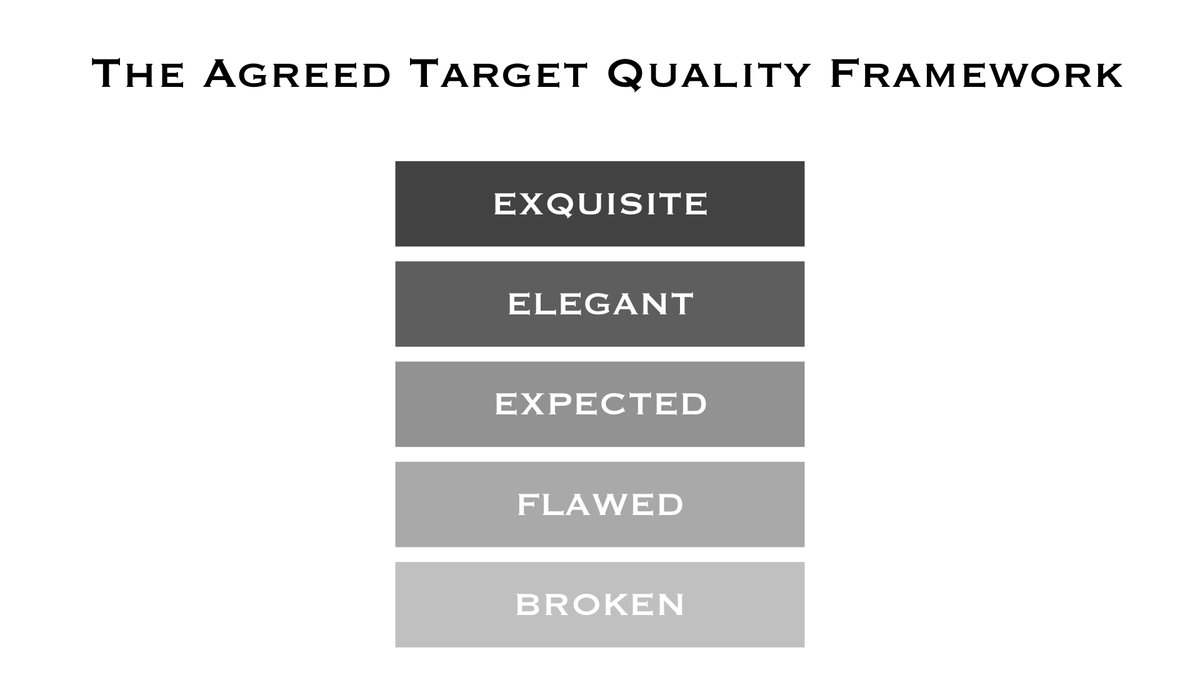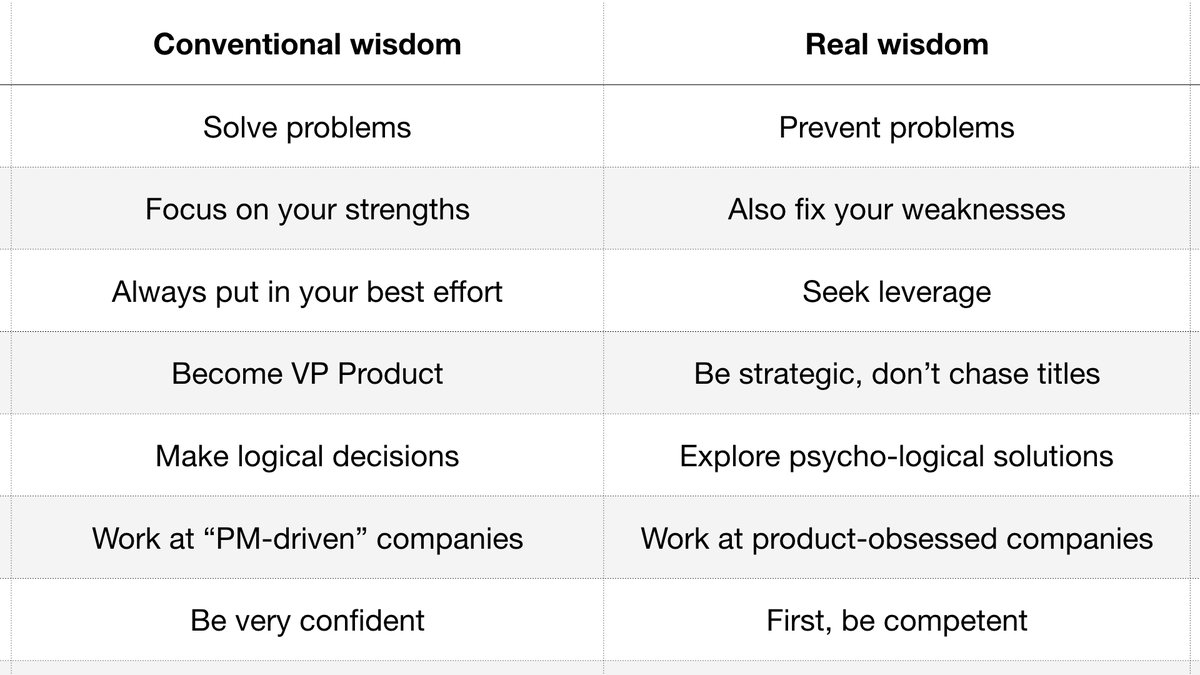Hey PMs & tech leaders, here’s a recording of my talk:
"The 7 Myths That Stymie PM Impact (& Careers)"
https://www.youtube.com/watch?v=jLH9xaerIB0">https://www.youtube.com/watch...
It covers some topics that don& #39;t get enough coverage, including:
Money vs Title
Confidence vs Competence
Problem Prevention (& pre-mortems)
Thread https://abs.twimg.com/emoji/v2/... draggable="false" alt="👇🏾" title="Rückhand Zeigefinger nach unten (durchschnittlich dunkler Hautton)" aria-label="Emoji: Rückhand Zeigefinger nach unten (durchschnittlich dunkler Hautton)">
https://abs.twimg.com/emoji/v2/... draggable="false" alt="👇🏾" title="Rückhand Zeigefinger nach unten (durchschnittlich dunkler Hautton)" aria-label="Emoji: Rückhand Zeigefinger nach unten (durchschnittlich dunkler Hautton)">
"The 7 Myths That Stymie PM Impact (& Careers)"
https://www.youtube.com/watch?v=jLH9xaerIB0">https://www.youtube.com/watch...
It covers some topics that don& #39;t get enough coverage, including:
Money vs Title
Confidence vs Competence
Problem Prevention (& pre-mortems)
Thread
Some of these 7 ideas are quite radical, others less so.
And they are not for everyone.
But I hope that they will inspire further reflection.
You& #39;ll also see slightly unconventional book recommendations for PMs and product leaders in general.
And they are not for everyone.
But I hope that they will inspire further reflection.
You& #39;ll also see slightly unconventional book recommendations for PMs and product leaders in general.
1st:
Solving problems is good, but selectively preventing key problems is even better.
Solving problems is good, but selectively preventing key problems is even better.
This thread (which blew up a bit when I first posted it) covers it in more detail, so check it out if you haven& #39;t already: https://twitter.com/shreyas/status/1218724150312751104">https://twitter.com/shreyas/s...
This is why problem solving is so enticing: https://twitter.com/shreyas/status/1218730766076534784">https://twitter.com/shreyas/s...
And this thread delves into pre-mortems, a key tool you can use for problem prevention: https://twitter.com/shreyas/status/1221257560033857536">https://twitter.com/shreyas/s...
2nd:
PMs should definitely utilize their strengths, but they will have a greater impact and become better product leaders if they also address their weaknesses.
PMs should definitely utilize their strengths, but they will have a greater impact and become better product leaders if they also address their weaknesses.
Learn more about this in this Tweetstorm: https://twitter.com/shreyas/status/1055725971163176960">https://twitter.com/shreyas/s...
3rd:
You can increase your impact on the organization (and reduce the tremendous stress that often accompanies the PM job) by avoiding the trap of doing a great job on all tasks (and even features). Seek leverage, actively try to do a bad job for certain tasks.
What!!??
Yes.
You can increase your impact on the organization (and reduce the tremendous stress that often accompanies the PM job) by avoiding the trap of doing a great job on all tasks (and even features). Seek leverage, actively try to do a bad job for certain tasks.
What!!??
Yes.
This deserves a Tweetstorm of its own, and I worry that some of the nuance will be lost as I summarize here, but I& #39;m feeling brave today.
Though better than reading it here, jump directly to this part of the talk: ">https://youtu.be/jLH9xaerI...
Though better than reading it here, jump directly to this part of the talk: ">https://youtu.be/jLH9xaerI...
I often find that a large part of early/mid-career PMs& #39; work stress is due to not recognizing this:
Overhead tasks
(note: you actually won& #39;t end up doing a *bad* job, but as a perfectionist, you should actively try to do a bad job so you end up doing an OK job, which is what such tasks deserve)
(note: you actually won& #39;t end up doing a *bad* job, but as a perfectionist, you should actively try to do a bad job so you end up doing an OK job, which is what such tasks deserve)
A nonspecific PM& #39;s to-do list, before using the LNO Effectiveness Framework:
(not including the 4 hours of meetings they have today)
(not including the 4 hours of meetings they have today)
The same PM& #39;s to-list, after applying the LNO Effectiveness Framework:
(now they& #39;re able to spend *more* time on the high leverage tasks than they would have otherwise, while still spending *less* total time to get through the tasks of the day)
(now they& #39;re able to spend *more* time on the high leverage tasks than they would have otherwise, while still spending *less* total time to get through the tasks of the day)
A similar concept can also be applied to product features.
Be intentional about what type of feature you& #39;re trying to build in a given context.
Chiefly, once everyone& #39;s on the same page on the quality level you& #39;re aiming for, you can more rigorously resolve disagreements.
Be intentional about what type of feature you& #39;re trying to build in a given context.
Chiefly, once everyone& #39;s on the same page on the quality level you& #39;re aiming for, you can more rigorously resolve disagreements.
The most useful part of the Agreed Target Quality framework is the common lexicon. It works wonders when Eng–Design–PM are all aligned on the target quality for a given milestone.
(I& #39;ve adapted this over the years after first learning about it from @jeffseibert at Twitter)
(I& #39;ve adapted this over the years after first learning about it from @jeffseibert at Twitter)
4th:
Becoming VP Product / CPO / COO / etc. isn& #39;t the only path for high-performing PMs. And it might even be a terrible path for some. So, don& #39;t just chase the big title.
And remember one key thing:
Title and Money are not as correlated as you might think.
What!!??
Becoming VP Product / CPO / COO / etc. isn& #39;t the only path for high-performing PMs. And it might even be a terrible path for some. So, don& #39;t just chase the big title.
And remember one key thing:
Title and Money are not as correlated as you might think.
What!!??
Jump to the part of the talk that describes how "LinkedIn Envy" pushes many high-performing PMs towards bad career decisions, why trying to emulate the "celebrity PMs" / 30-under-30 PMs is a bad idea, and what to do instead: ">https://youtu.be/jLH9xaerI...
5th:
Pride in one& #39;s logical & analytical thinking can create major blind-spots for PMs and product leaders. You must understand the psychological factors that will influence your users& #39; and customers& #39; behavior. This applies to consumer products AND to enterprise products.
Pride in one& #39;s logical & analytical thinking can create major blind-spots for PMs and product leaders. You must understand the psychological factors that will influence your users& #39; and customers& #39; behavior. This applies to consumer products AND to enterprise products.
At this point, we get to the part of the talk where I leave exercises for the audience (and for you here).
If you are a PM (or if work on products in almost any capacity), you must read "Alchemy" by @rorysutherland. https://www.amazon.com/Alchemy-Curious-Science-Creating-Business/dp/006238841X/">https://www.amazon.com/Alchemy-C...
If you are a PM (or if work on products in almost any capacity), you must read "Alchemy" by @rorysutherland. https://www.amazon.com/Alchemy-Curious-Science-Creating-Business/dp/006238841X/">https://www.amazon.com/Alchemy-C...
Another must-add to the PM bookshelf:
In "Super Thinking", Lauren McCann and @yegg describe hundreds of mental models that can help you become a better thinker and decision maker. https://www.amazon.com/Super-Thinking-Book-Mental-Models/dp/0525533583/">https://www.amazon.com/Super-Thi...
In "Super Thinking", Lauren McCann and @yegg describe hundreds of mental models that can help you become a better thinker and decision maker. https://www.amazon.com/Super-Thinking-Book-Mental-Models/dp/0525533583/">https://www.amazon.com/Super-Thi...
Bonus PM book recommendation:
"The Art of the Good Life" by @dobelli is one of my top 5 favorite books of all time.
It will make you a better PM and decision-maker (among other things). https://www.amazon.com/Art-Good-Life-Surprising-Shortcuts/dp/0316445096/">https://www.amazon.com/Art-Good-...
"The Art of the Good Life" by @dobelli is one of my top 5 favorite books of all time.
It will make you a better PM and decision-maker (among other things). https://www.amazon.com/Art-Good-Life-Surprising-Shortcuts/dp/0316445096/">https://www.amazon.com/Art-Good-...
Last one here:
"The Art of Thinking Clearly", also by @dobelli https://www.amazon.com/Art-Thinking-Clearly-Rolf-Dobelli/dp/0062219693/">https://www.amazon.com/Art-Think...
"The Art of Thinking Clearly", also by @dobelli https://www.amazon.com/Art-Thinking-Clearly-Rolf-Dobelli/dp/0062219693/">https://www.amazon.com/Art-Think...
#6:
Don& #39;t assume that "PM-driven" companies are better for PMs. If you care about building superb products, you& #39;ll be better off at a company where Eng/Design/others have an *equal* voice in what product gets built. PM-driven companies are good for PMs& #39; egos, but not much else.
Don& #39;t assume that "PM-driven" companies are better for PMs. If you care about building superb products, you& #39;ll be better off at a company where Eng/Design/others have an *equal* voice in what product gets built. PM-driven companies are good for PMs& #39; egos, but not much else.
The ego feels great when we’re in charge.
But it almost always leads to worse products. When PMs are "calling the shots", largely based on their title, why should others care deeply about the product?
So, seek "product-obsessed companies" and avoid "PM-driven companies".
But it almost always leads to worse products. When PMs are "calling the shots", largely based on their title, why should others care deeply about the product?
So, seek "product-obsessed companies" and avoid "PM-driven companies".
Speaking of ego, if you want to learn more about shedding your ego and being an even-keeled PM, there’s no better book than “The Practicing Stoic” by Ward Farnsworth.
(another one of my top 5 all-time favorite books, and also unconventional PM book reco) https://www.amazon.com/Practicing-Stoic-Philosophical-Users-Manual/dp/1567926118/">https://www.amazon.com/Practicin...
(another one of my top 5 all-time favorite books, and also unconventional PM book reco) https://www.amazon.com/Practicing-Stoic-Philosophical-Users-Manual/dp/1567926118/">https://www.amazon.com/Practicin...
#7 (last one):
Many Medium posts about product management (and leadership in general) will advise you to be very confident with your team. Decent advice, but it needs to be accompanied with guidance on adequately balancing confidence with actual competence.
Many Medium posts about product management (and leadership in general) will advise you to be very confident with your team. Decent advice, but it needs to be accompanied with guidance on adequately balancing confidence with actual competence.
"Fake it till you make it" is regularly doled out as great advice to would-be leaders and executives. If taken very seriously, this advice can have major harmful effects, both on the team/product/company and on the individual who& #39;s faking it. (but that& #39;s for another Tweetstorm)
Regarding Confidence vs. Competence, I learned something super-valuable here from @StephanieLSoler, my executive coach at Twitter.
As a leader, your level of Confidence should be just *very slightly* above your actual Competence.
As a leader, your level of Confidence should be just *very slightly* above your actual Competence.
Now, onto the book recommendations for this one.
"Mistakes were made (but not by me)" by Carol Tavris and Elliot Aronson reminds us of the countless ways in which we& #39;re fallible. Therefore, keep your confidence in check. https://www.amazon.com/Mistakes-Were-Made-but-Not/dp/0544574788/">https://www.amazon.com/Mistakes-...
"Mistakes were made (but not by me)" by Carol Tavris and Elliot Aronson reminds us of the countless ways in which we& #39;re fallible. Therefore, keep your confidence in check. https://www.amazon.com/Mistakes-Were-Made-but-Not/dp/0544574788/">https://www.amazon.com/Mistakes-...
"The Charisma Myth" by Olivia Fox Cabane is a splendid book, that among other things, prescribes an authentic path towards building and exuding confidence. https://www.amazon.com/Charisma-Myth-Science-Personal-Magnetism/dp/B008EWTL56/">https://www.amazon.com/Charisma-...
If you& #39;ve reached this far:
1. Thank you. Please share any and all feedback below.
2. Here& #39;s a direct link to the Q&A section of my talk, which goes well beyond typical PM topics, including a brief discussion of “what is success and what is happiness”. ">https://youtu.be/jLH9xaerI...
1. Thank you. Please share any and all feedback below.
2. Here& #39;s a direct link to the Q&A section of my talk, which goes well beyond typical PM topics, including a brief discussion of “what is success and what is happiness”. ">https://youtu.be/jLH9xaerI...

 Read on Twitter
Read on Twitter